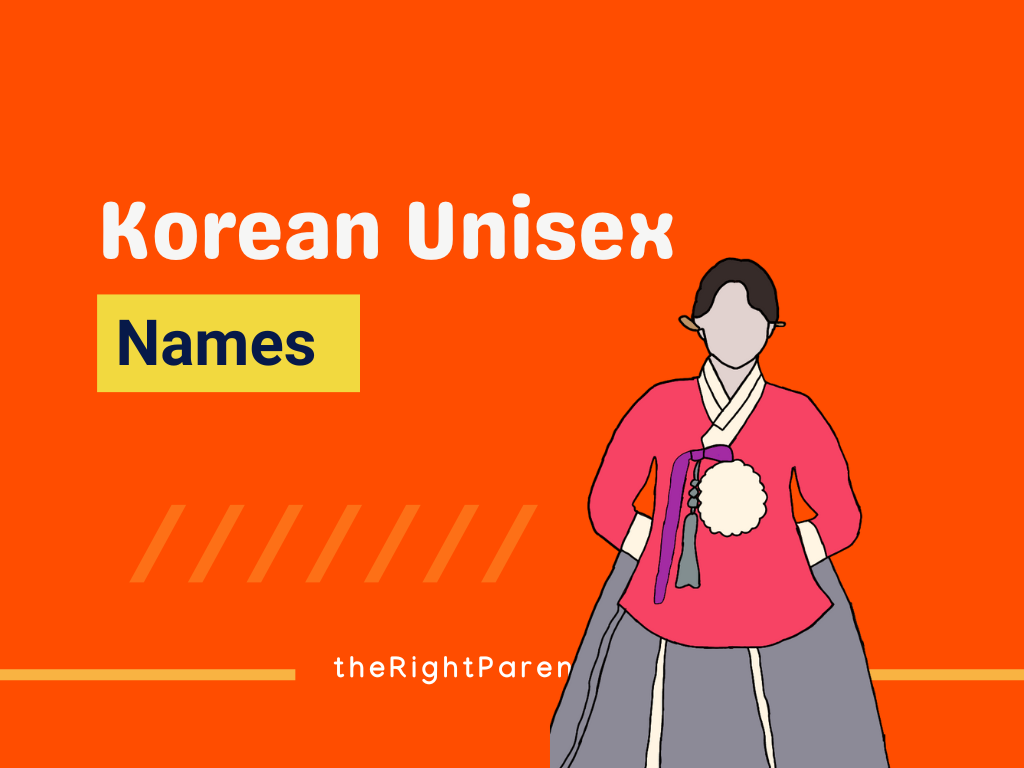Are All Korean Names Unisex?

When we think about names, we often associate them with specific genders. For example, in many cultures, names like "John" or "Michael" are for boys, while "Mary" or "Jessica" are for girls. But what about Korean names? Are all Korean names unisex? This question can spark interesting conversations about culture, identity, and language. Let’s dive into the world of Korean names to uncover the truth!
The Basics of Korean Names
First, let’s understand how Korean names work. A typical Korean name consists of three syllables: a family name (or surname) followed by a two-syllable given name. For example, in the name "Kim Min-jun," "Kim" is the family name, and "Min-jun" is the given name.
Family Names: A Common Ground
Most Korean family names are quite common. In fact, there are only about 250 family names in Korea! Some of the most popular ones include Kim, Lee, and Park. Regardless of gender, siblings often share the same family name. This means that family names don’t really give us clues about whether a name is unisex or not.
Are Given Names Unisex?
Now, let’s talk about given names. Unlike family names, Korean given names can be a bit more complex. Traditionally, many Korean given names are indeed gender-specific. For example, names like "Jin-woo" are typically male, while names like "Soo-jin" are usually female.
However, things are changing. In modern times, some names can be considered unisex. Names like "Min" or "Jae" can be used for both boys and girls. This shift reflects a broader trend towards gender inclusivity in many cultures.
Real-Life Examples
To illustrate how Korean names can be unisex, let’s look at a couple of examples:
-
Min: This name can be part of a male name like "Min-ho" or a female name like "Min-ji." Both names share the same first syllable, "Min," making them relatable across genders.
-
Jae: Similar to "Min," "Jae" can appear in names like "Jae-suk" for boys and "Jae-hee" for girls.
These examples show that while many Korean names are gender-specific, there is a growing acceptance of unisex names.
Cultural Influences on Naming
The evolution of Korean names is influenced by various factors, including culture, media, and global trends.
K-Pop and Popular Culture
One significant influence is K-Pop. As Korean pop culture gains international popularity, many fans have started adopting Korean names. This trend often leads to the use of unisex names because fans want names that feel modern and inclusive.
For instance, the name "Yoon" can be seen in both male and female K-Pop idols. This visibility helps break down traditional gender norms and encourages more people to embrace unisex names.
Changing Perspectives
In addition to pop culture, changing societal views on gender roles play a crucial role. As more people advocate for gender equality, the idea that names should be strictly tied to gender is being challenged. This evolution allows for a broader range of names that can be embraced by anyone, regardless of gender identity.
Practical Tips for Choosing a Korean Name
If you’re interested in Korean names, whether for yourself or a character in a story, here are some practical tips:
1. Research Popular Names
Check out lists of popular Korean names. You can find names that are currently trendy or have historical significance. Websites and books about Korean culture often provide insights into the meanings and origins of various names.
2. Look for Unisex Options
If you want a name that feels inclusive, focus on names that are known to be unisex. Names like "Min," "Jae," and "Soo" are great choices.
3. Consider the Meaning
Many Korean names have beautiful meanings associated with nature, virtues, or aspirations. For example, "Soo" can mean "long life" or "excellence." Choosing a name with a meaningful background can add depth and significance.
4. Ask for Help
If you’re unsure, don’t hesitate to ask someone knowledgeable about Korean culture. They can provide insights and help you choose a name that feels right.
Conclusion: The Future of Korean Names
So, are all Korean names unisex? The answer is no, but the landscape is changing. While many Korean names remain gender-specific, the rise of unisex names reflects a shift towards more inclusive perspectives on gender. As society evolves, so do our names, allowing for more freedom of expression.
Whether you’re considering a Korean name for yourself or simply curious about the culture, remember that names carry stories and meanings. Embracing the diversity of names can be a beautiful way to connect with others and celebrate individuality.
In the end, whether a name is unisex or not, what truly matters is the identity and significance it holds for the person who carries it. So, explore, learn, and perhaps even find a name that resonates with you!



Comments ()